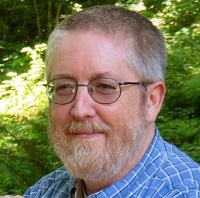While they have much to recommend them, the free market and the global banking system aren’t without their shortcomings. The Orthodox Church in Russia has proposed a banking model that corrects what it sees as the most serious of that industry’s moral failings. However, the system the Church purposes is unlikely to foster economic growth. It also overlooks the convergence of the free market with key elements of the Orthodox moral tradition.
As explained in a recent article, the proposed Orthodox Financial System (OFS) is more interested in economic safety than in fostering the kind of innovation required for a growing economy. For this reason it will be “made up of a low-risk credit organization that controls all transactions, and investment funds or companies that source investors and mediate project financing.”
The assertion that “a low-risk credit organization will prove invulnerable given its avoidance of operations with active financial risks,” however, is problematic; low risk is still risk. Low risk also means a low rate of return. With an economy that has contracted four percent this year and is suffering double digit inflation, a financial plan that aims at low growth is, as the head of analysis at the Association of Russian Banks Sergei Grigoryan points out, short on practicality.
But let’s assume for the moment the OFS is going to foster the economic growth Russia needs. It still isn’t clear to me that the OFS is significantly different than the Western model it is seeks to replace. The OFS looks to me as less an alternative outside the global free market and more an attempt to create a niche bank system within that market.
The article points out that a central feature of the OFS is that the parties “share risks, profits, and losses.” Far from undermining this goal, a just interest rate (as opposed to usury, or an unjust rate that the Orthodox Church condemns) is a way for the bank and the debtor to share risk. They also share the benefits. If all goes according to plan, the bank makes a justified profit and the borrower has access to capital. Dmitry Surmilo, the coordinator of the working group creating the OFS at the Moscow Patriarchate's department of external church relations does highlight one difference. He says that the “Orthodox Financial System sees social wealth as more important than personal wealth.” Fair enough. But this is also true in the West; seeing this, however, requires that we look carefully at the anthropological foundation of the contemporary banking.
Surmilo’s contends that Western influenced “banks give loans to everybody and expect all of them to be returned in time without taking into account people's financial situation or their personal circumstances.” Strictly speaking, is this really the case? Does the Western system really ignore the uniqueness of the person?
I don’t think it does.
Banks require varying amounts of collateral from and charge different interest rates to different customers. Yes, the bank does this to protect its own profitability. For the Orthodox moral tradition, there is nothing necessarily immoral in the pursuit of profit. More importantly for our concern here, however, profit is not the bank’s only concern.
Treating potential customers differently also reflects the bank’s moral responsibility to determine and safeguard the unique circumstances of the person and so the ability of the borrower to repay the loan. This isn’t morally wrong. While it may seem unfair, when we look at the situation more carefully we see that it reflects the very financial personalism that Surmilo says is at the heart of the Russian model.
Valuing the uniqueness of the person is also why it both makes good business sense and good moral sense for banks to expect repayment on time. Again, while this reflects the self-interested desire for profit it also takes seriously the importance of an agreement freely entered into by the borrower and the bank. Like all contracts, a loan agreement embodies the social value of personal integrity and mutual trust. While it can be unpleasant to do so, respecting human freedom and dignity means holding individuals accountable to the promises they freely make and for the obligations they freely assume.
Surmilo is right when he suggests that there are unforeseen circumstances that make it difficult and even impossible or the borrower to repay the loan. Here too, though, the Western banking system reflects the personalist orientation that guides the OFS. There are well-established and respected legal and regulatory mechanisms that take into account changes in a person’s circumstances that make it impossible (or very difficult) to pay back a loan. The most noticeable of these is U.S. bankruptcy law. Like the proposed Orthodox model, the Western economic system “sees social wealth as more important than personal wealth” and so has developed objective guidelines that protect the dignity of both parties to a loan.
A more substantive criticism of the OFS is that its profitability depends on the very global banking system it criticizes. It is the wealth-creating ability of the free market that makes the Russian alternative model possible. OFS banks will be able to provide “low-interest loans” and “can compensate for lost profit” through their participation in the “the foreign exchange market or through investment.” The free market allows room for the niche banking system proposed by the Church. Far from being a bug, it shows the flexibility of the free market. It also opens up the possibility for greater Orthodox Christian participation and moral witness in the marketplace.













